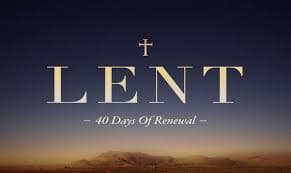The Death of Sarah

“And Sarah died” (Genesis 23:2).
In a previous post I wrote about the death of Professor Norman Gottwald, my former professor at the Graduate Theological Union in Berkeley, California. Gottwald was 95 years old when he died. Gottwald’s death compels us to think about the reality of death, a reality that all of us must face, sooner or later.
The writer of Ecclesiastes was right: “There is a time for everything, and a season for every activity under heaven: There is a time to be born and a time to die” (Ecclesiastes 3:1-2). The end of birth is death and the end of death is birth into a new and wonderful life.
To those who believe in Christ, death is the end of all their pain and sorrow and the beginning of all their joys. There is no resurrection unless there is death. The God of the Bible is not the God of the dead but the God of the living (Luke 20:28).
Sarah was 90 years old when her son Isaac was born and 127 when she died. Sarah laughed when Isaac was born and she laughed again when she died. Physically, she probably was weak and frail when she died but spiritually, on the day she died, she was strong enough to win her greatest victory: “O death, where is your victory?” (1 Corinthians 15:55).
After Sarah died, Abraham mourned and wept for her, “And Sarah died at Kiriath-arba (that is, Hebron) in the land of Canaan; and Abraham went in to mourn for Sarah and to weep for her” (Genesis 23:2). The father of the faithful, himself a man of faith, wept for the wife he loved. His faith did not harden his heart; he was a man of faith but he also was a man of feelings.
Abraham wept for Sarah. Abraham, the man who was to become the example of all faithful, wept. And so did Jesus at the occasion of Lazarus’s death. “Blessed are you who weep now, for you will laugh” (Luke 6:21).
Abraham wept in the face of death. His tears show that his faith was as human as the sorrow he experienced. And we join him when the time of sorrow arrives for us. If we are willing to join Abraham in his faith why not in his pain: “Oh, how I weep for you” (2 Samuel 1:26).
John Donne wrote: “No man is an island, entire of itself; every man is a piece of the continent, a part of the main; if a clod be washed away by the sea, Europe is the less . . . any man’s death diminishes me, because I am involved in mankind, and therefore never send to know for whom the bell tools; it tolls for thee.”
Those who live a life of independence and self-centeredness will have a difficult time understanding how human beings are related to each other. The death of a believer overshadows Christian fellowship by the work of a temporary destroyer. As Donne wrote, our lives are diminished and impoverished by the angel of death.
If there is a time to be born and a time to die, then the end of life will demand that we provide a grave for the dead. Abraham bought a burial place for Sarah and all of us will need a burial place someday.
People go down to their graves in different ways. Some people live in such a way that when they die they will be greatly missed. Others live in such a way that when they die few will notice their absence. “Blessed are those who die in the Lord, for their good deeds follow them!” (Revelation 14:13).
Abraham mourned for Sarah, David for his son, and Jesus for his friend. Our faith in a Risen Savior does not eliminate our humanity nor diminish our love. To the contrary, Christianity heightens our humanity, refines our love, and magnifies our sense of community.
Someday, the finger of God will touch all of us and we will sleep. But death is not the end of everything. We think of death as the end of life rather than the beginning. We think of death as losing rather than gaining. Death is not departing but arriving. In death believers reach their final destination.
As believers, we praise our Lord and Savior Christ Jesus, “who abolished death and brought life and immortality to light through the gospel” (2 Timothy 1:10). In Christ, “Death is swallowed up in victory. O death, where is your victory? O death, where is your sting? How we thank God, who gives us victory over death through Jesus Christ our Lord!” (1 Corinthians 15:54-57).
“Blessed are those who die in the Lord from now on. Yes, says the Spirit, they are blessed indeed, for they will rest from all their toils and trials; for their good deeds follow them!” (Revelation 14:13).
Claude Mariottini
Emeritus Professor of Old Testament
Northern Baptist Seminary
NOTE: Did you like this post? Do you think other people would like to read this post? Be sure to share this post on Facebook and share a link on Twitter or Tumblr so that others may enjoy reading it too!
I would love to hear from you! Let me know what you thought of this post by leaving a comment below. Be sure to like my page on Facebook, follow me on Twitter, follow me on Tumblr, Facebook, and subscribe to my blog to receive each post by email.
If you are looking for other series of studies on the Old Testament, visit the Archive section and you will find many studies that deal with a variety of topics.








